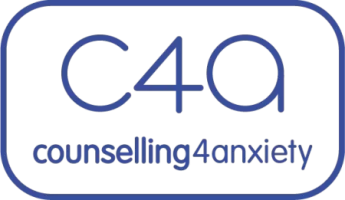Anxiety has a way of making us believe that safety lies in avoidance. If social situations make you anxious, it might seem logical to stay home. If crowded spaces feel overwhelming, avoiding them might seem like the best option. If the mere thought of speaking up fills you with dread, staying quiet feels like the safest route. But what if the very thing that feels like relief is actually keeping your anxiety alive? This very thought goes counter the reactive way that our brains act when we feel anxious - they try and take us away from that very situation.
Avoidance is the silent force that sustains social anxiety, agoraphobia, and many other fears. It whispers, “Just stay away, and you won’t have to feel this discomfort.” But in reality, avoidance only strengthens anxiety, reinforcing the belief that the world is dangerous and that you are incapable of handling it. It weakens the sense of self, reduces any sense of self-resilience and capability and re-enforces a belief that the person cannot do the activity. Avoidance therefore keeps the loop of anxiety alive.
The Cycle of Avoidance and Anxiety
Imagine you feel anxious about going to a social gathering. The thought of making small talk or being the center of attention feels unbearable, so you decide to stay home. In the moment, you feel relief. But what happens next time? The anxiety returns—maybe even stronger. Your brain has learned that avoidance “works” to relieve discomfort, so it becomes your go-to strategy. Over time, this avoidance solidifies, making social situations seem even more daunting.
This pattern applies to all kinds of fears. Someone with agoraphobia may avoid public spaces, gradually shrinking their world to only the “safe” places. Someone with a fear of driving may avoid roads altogether, reinforcing the idea that driving is dangerous. The more we avoid, the more powerful the fear becomes.
Avoidance Shrinks Your World
Anxiety convinces us that avoidance is protecting us, but in truth, it is limiting us. What starts as avoiding a few situations can quickly turn into avoiding entire parts of life—work opportunities, friendships, travel, or even stepping outside the home.
When we avoid, we don’t give ourselves the chance to learn that we can handle discomfort, that anxiety does not last forever, and that we are far more capable than we believe. Avoidance steals these opportunities for growth and keeps us stuck in a cycle of fear.
Breaking Free: Facing Fear With Compassion
The good news? The cycle of avoidance can be broken. It doesn’t have to be all at once or in overwhelming ways. The key is taking small, manageable steps toward what you fear, building confidence with each step.
- Start Small – If social anxiety keeps you isolated, begin with small, low-pressure interactions—chat with a cashier, send a text instead of avoiding conversation, or step outside for a short walk in a public space.
- Challenge Avoidant Thoughts – Notice when your mind tells you to avoid something. Ask yourself: “Is this situation truly dangerous, or is my anxiety making it feel that way?”
- Practice Tolerating Discomfort – Anxiety is uncomfortable, but it is not harmful. Sitting with discomfort instead of running from it helps retrain your brain to realize that anxiety passes.
- Seek Support – Overcoming avoidance is challenging, but you don’t have to do it alone. A therapist, counselor, or supportive friend can encourage and guide you through these steps.
You Are Stronger Than Anxiety
Avoidance makes us feel powerless, but every small step we take toward our fears builds resilience. The more we face what makes us anxious, the more we prove to ourselves that we can handle discomfort. Anxiety therefore does not have to control your life. With time, patience, and support, you can break free from avoidance and reclaim the life you deserve.
You are more capable than anxiety wants you to believe. Every time you challenge avoidance, you are taking back control and proving to yourself that you can live the life you want. Change takes time, but every step forward matters. You really to deserve a life free from fear, filled with opportunities, connections, and confidence.

